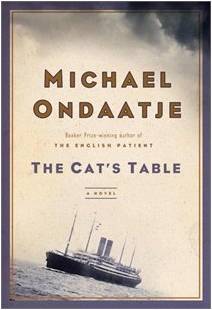
Canadian literature is as rich as its native children such as Joseph Boyden, who, Through Black Spruce, has allowed city folk to breathe in the heady scent of aboriginal life in the north, Hugh MacLennan, who bridged the gap between Two Solitudes and Gabrielle Roy, who made us understand that Bonheur d’occasion really translates as unhappiness for the Montreal St. Henri District working class during the difficult forties. And there are many more. So many that it could be said that Canada has one of the highest ratios of writers to reading public. And that is saying a lot in a highly literate population. Could the Canadian Council for the Arts and its hitherto encouraging policies have something to do with it? Perhaps. Are you listening, Mr. Harper?
Canadian cultural horizons, however, have been vastly broadened and made more cosmopolitan by the contributions of Canadian writers born elsewhere, bringing in their experiences, culture and unique perspectives. Once again, there are so many that to mention just a few would be doing a disservice to the unmentioned many. As they say in Spanish, to get an idea of a row of buttons, one sample suffices.
Montreal Serai has chosen The Cat’s Table, by Michael Ondaatje, as a sample of excellence in Canadian literature.
“What is interesting and important happens mostly in secret, in places where there is no power. Nothing much of lasting value ever happens at the head table, held together by a familiar rhetoric. Those who already have power continue to glide along the familiar rut they have made for themselves.” Michael Ondaatje, The Cat’s Table.
Where does the title come from? The cat’s table is the one farthest away from the Captain’s table in a passenger ship. That’s where you get the scraps of society if not of food. Distinguished passengers seated at more privileged tables take turns, upon invitation, to sit at the Captain’s table but that will not be the fate of Michael, our 11-year old hero who sits at the cat’s table, with an assortment of misfits and eccentrics. And this is because he is a pesky child travelling alone with a nominal guardian in the higher decks.
And herein lies the story. The plot is simple. A Ceylonese (the country’s name had not yet been decolonized) boy travels from Colombo to London to meet his mother whom he hasn’t seen in several years. The setting is the early fifties. (The publisher lets us know that Ondaatje, who shares the same first name as his hero and who made a similar journey at a similar age, has not meant to be autobiographical in spite of the autobiographical techniques resorted to in the novel. Crafty Ondaatje, he will leave us forever wondering!) He is apprehensive but not enough to not enjoy some escapades with his young comrades-in-arms. On the threshold of sexual maturity, he manages to get into scrapes for which he is cut down to size by the ship’s authorities. He has two sharp eyes and two keen ears which allow him to take in the comings and goings of the adults around him.
This fascinating narrative raises many questions. Was there a murder on board? Was there accidental manslaughter? Who is the mysterious prisoner taking in fresh air at night whose manacles and anklets scraping against the ship make him sound like a ghost? Is the furtive couple hiding in one of the life-boats an unlikely pair of lovers or Whitehall spooks at work? And what about the messenger pigeons and weimaraner pedigreed dogs? Who paid for Asuntha’s passage? Has the tailor lost his vocal chords? Will there be more burials at sea?
Ondaatje weaves in and out of these sub-plots and time frames with the consummate ease of a well-lauded writer. He manages to keep his readers hooked from beginning to end and somewhere in between he throws a curved ball hitting them hard in the chest, as deep and hard as the waves that make the cat’s table dip and swell. It is for this skill and insight and many more reasons that Ondaatje has been awarded the Booker Prize, the Irish Times International Fiction Prize, the Giller Prize, the Governor General’s Award (five times!) and the Prix Medicis, inter alia, we should add, for good measure.
Read this book if no other. Canadian literature at its best, eh?
[Media reports dated October 2011 state that Michael Ondaatje asked to be withdrawn from consideration for the Governor General’s Award for The Cat’s Table to give other writers a chance. Alas, it did not win the recent Giller Prize. ]